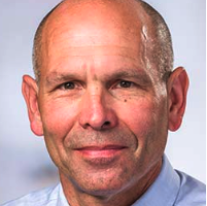Peter S.
Nelson
M.D.

(206) 667-3377
Fred Hutch Cancer Center
1100 Fairview Ave. N, E2-112
Seattle, WA 98109
Photo: Fred Hutch
Education, Training, Board Certifications
- M.D., University of Kansas
- Residency, University of Kansas Medical Center
- Fellowship in Hematology-Oncology, UW/Fred Hutch
- Medical Oncology, American Board of Internal Medicine
- Internal Medicine, American Board of Internal Medicine
Clinical Expertise
- Prostate cancer
Affiliations
Research and/or clinical interests
Dr. Pete Nelson studies prostate cancer which is, among men, the most common type of cancer and the second leading cause of death from cancer. Though many cases are curable, treatment can have negative side effects, and researchers have yet to develop a cure for advanced, hormone-deprivation-resistant prostate cancer. Dr. Nelson works to understand what triggers the disease and how it develops, as well as to improve therapies and discover new treatment targets. His research covers everything from inherited mutations that increase the risk of developing advanced prostate cancer to the link between aging and prostate cancer. He also works to identify genetic alterations in prostate tumors that can help oncologists tailor treatment for individual patients.
Dr. Nelson's lab focuses on understanding the molecular, cellular and physiological events that lead to cancer initiation and progression. Dr. Nelson's work studies the genomic features of prostate cancer tumors with the goal of developing diagnostic, prognostic, and therapeutic strategies. Specifically, his research explores gene expression variability, the role of the androgen receptor pathway and the tumor microenvironment and their role in the response and resistance mechanisms to prostate cancer therapies.



